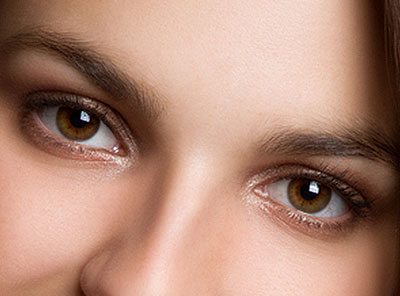
Vision, or ‘eyesight’ is one of the five sensory perceptions given to a human being, others being – touch, smell, hearing, and taste. Like all other faculties of the human body, vision also deteriorates with age. Age-related conditions such as macular degeneration, cataract, diabetic retinopathy and glaucoma can cause low to poor vision and blindness in some cases. It’s estimated that some sort of eyesight-threatening condition affects one in six adults aged 45 years or older.
Considering the importance of vision in your day to day lives, protecting your eyesight is one of the most important things you can do to help maintain your quality of life.
Tips for Protecting Your Eyes
Protecting your eyes and eyesight is one of those areas of healthcare you must attend to, as you grow older. The following tips are useful guidelines for anybody.
1 – Assess your Risk factors for eye diseases
Your family’s health history poses a big risk for your eyesight. If your family members suffered or suffer from diabetes or high blood pressure, you could be at risk too. Age is another risk factor and if you are over 60 years, your risk for sight-threatening eye conditions increases. That is why, it’s important to have regular eye exams, as vision-threatening conditions can be detected then, paving the way for early treatment and cure.
2 – Monitor blood sugar and blood pressure regularly
Both diabetes and high BP are known to trigger diabetic retinopathy, macular degeneration and eye strokes, which can cause loss of vision. If you are over 40 years, have your blood sugar and BP checked once a year, and once in six months if you are over 60 years.
3 – Watch out for those warning signs
There are numerous conditions that hint at a possibility of your vision being affected if left untreated. These include hazy or double vision, red eyes, floaters, frequent flashes of light, eye pain, swelling and poor visibility in low light conditions. Whenever you notice these symptoms, meet an ophthalmologist immediately.
4 – Regular exercise is a boon
Exercises such as walking, jogging or yoga can reduce the risk of macular degeneration and other age-related vision problems by up to 70 percent, if done regularly.
5 – Guard your eyes UV light
Ultraviolet rays which are a part of the visible light spectrum is known to increase the risk of cataracts, pinguecula and certain other eye conditions. That is why, it’s important to use sunglasses when you are outdoors during daytime.
6 – Have a healthy, nutritious and balanced diet
It’s well-known that eating fruits, colourful vegetables and dark leafy vegetables which are rich in antioxidants can greatly reduce the risk of cataracts. Eating fish which is rich in omega-3 fatty acids reduces the risk of macular degeneration. You can also take vitamin tablets after consulting your ophthalmologist as these can supplement your diet with vitamins required for healthy eyes.
7 – Have an eye check-up once a year
Frequent and comprehensive eye-checks can help detect conditions such as diabetic retinopathy which have no clear symptoms. The eye exam will also assess your overall eyesight, and prescribe eyeglasses or contact lenses if required.
8 – Quit smoking
Smoking causes as many as 10 deadly diseases and over 30 different ailments affecting different parts of the body. When it comes to eyesight as well, smokers are at a higher risk of developing cataracts, uveitis, age-related macular degeneration and a host of other eye conditions.
While these are a broad set of guidelines, other safety measures include the use of safety glasses while working with tools, implements and while playing sports. These can prevent injuries that cause temporary or permanent vision loss. It’s also important to maintain a healthy lifestyle and have frequent eye checkups.
All these will ensure your vision is fairly good as you age, which will help you handle your daily tasks independently and enjoy a reasonably good quality of life.

Article by Dr. Anil Chandra, MBBS, MS(OPHTHAL)
Senior Consultant Phaco & Refractive Surgeon
Kauvery Hospital

